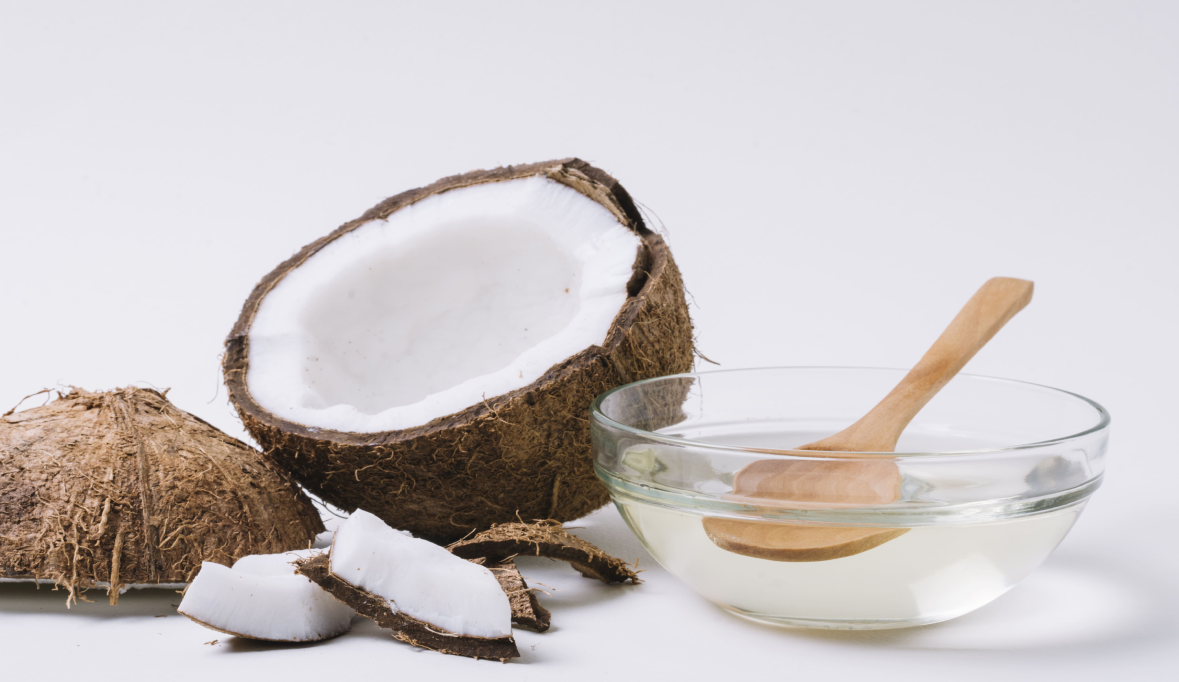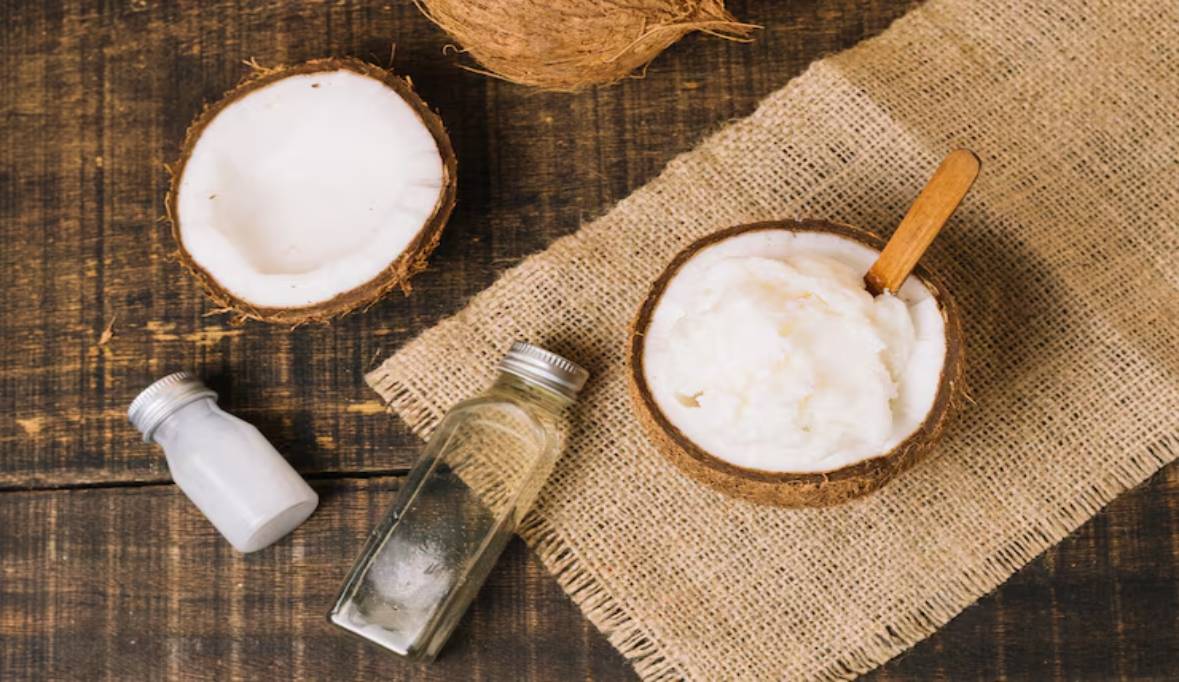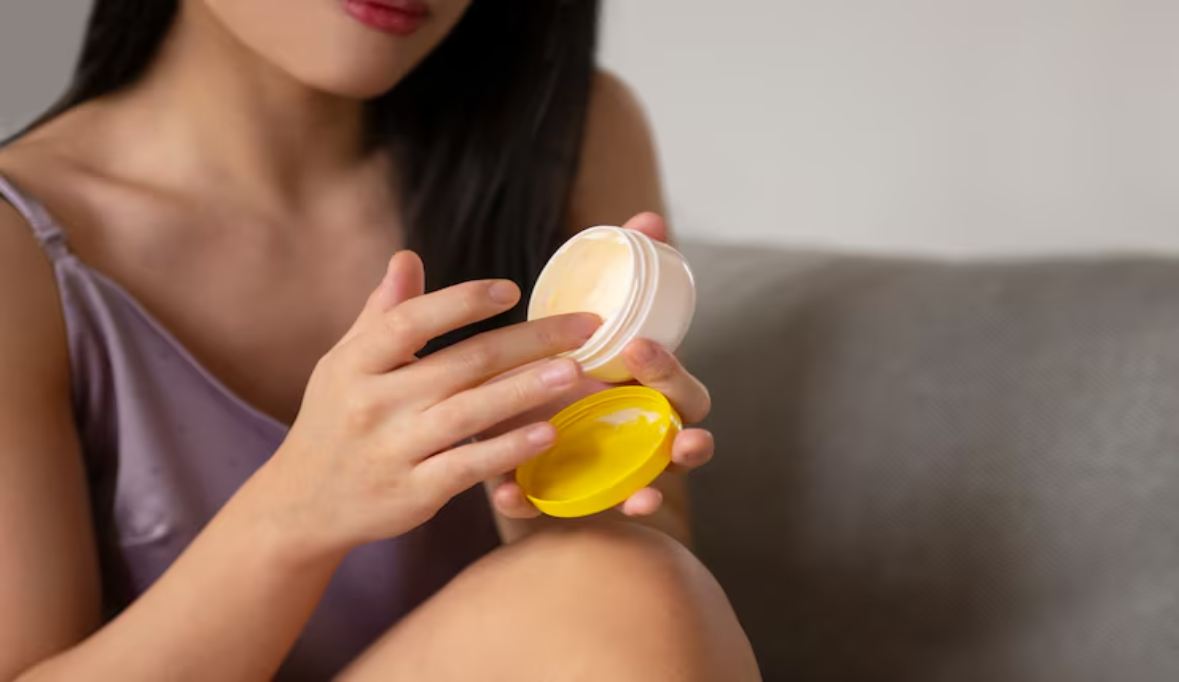For over 100 years, petroleum jelly has been the go-to fix for dry, irritated skin. It earned its place in medicine cabinets everywhere because it works. The shiny balm is effective at sealing in moisture, protects cracked lips and heels, and soothes irritation in a pinch. But today, skincare is shifting from quick fixes to trust, safety, and sustainability. In fact, more consumers are pausing to ask: Is this safe for me? Is it sustainable? What’s the hidden cost to the planet?
If your brand is exploring a natural, renewable, and skin-loving alternative to petroleum jelly to keep up with changing consumer behavior, it’s worth exploring Cocolatum. Developed by Natura Aeropack, Cocolatum blends cocoglycerides (from coconut oil), candelilla wax, and rice bran wax into a silky emollient that performs as well as petroleum jelly but with a much lighter environmental footprint.

Here are six ways this plant-based innovation can help your products stand out while keeping both people and the planet in mind:
1) It Tells a Cleaner, Greener Origin Story
Petroleum jelly’s roots are tied to fossil fuels. It comes from oil drilling, which is a process synonymous with pollution, carbon emissions, and ecological disruption. For conscious shoppers, that origin story feels outdated.
On the other hand, Cocolatum begins with coconut trees, which are one of nature’s most generous crops. These trees thrive in diverse climates, bear fruit year-round, and don’t demand heavy resources to grow. They’re resilient, renewable, and part of a living ecosystem rather than a depleted one.
By choosing Cocolatum, your brand will be able to shift from a legacy of drilling rigs and refineries to one of farming communities and renewable agriculture. That’s a narrative rooted in wellness and responsibility, which customers want to see reflected in the products they use every day.
2) It Delivers Performance That Goes Beyond Protection
Any contender hoping to replace petroleum jelly has to deliver. Consumers expect the same long-lasting barrier that locks in hydration. Fortunately, Cocolatum does exactly that.
But it doesn’t stop at building barriers. Thanks to coconut oil’s unique fatty acid profile, Cocolatum also nourishes the skin from within. Lauric acid, polyphenols, and antioxidants work their way past the surface layer, offering anti-inflammatory and restorative benefits. In other words, it actively supports healing and resilience from within. Imagine being able to develop a hand cream that not only shields against dryness but also reduces redness and strengthens the skin barrier with antioxidants; that’s the kind of product your customers will want to use on the regular.
3) It Shrinks the Environmental Footprint
Every product has a life cycle that extends beyond the jar or tube. From ingredient sourcing to manufacturing to what happens after it’s thrown away, the environmental cost adds up. Petroleum-based products weigh heavily on every stage of that cycle.
Cocolatum offers a refreshing alternative. It’s biodegradable, integrates seamlessly back into nature, and leaves behind no toxic residue. Plus, the coconut trees it’s sourced from absorb carbon dioxide during growth, actively helping to rebalance emissions. Therefore, choosing Cocolatum is a visible, measurable step toward lowering your brand’s environmental footprint.
4) It Ensures Safety for All Skin Types
Here’s something few consumers realize: unless petroleum jelly is highly refined, it can contain trace contaminants called polycyclic aromatic hydrocarbons (PAHs). While regulated, the mere association with potential risks makes buyers uneasy, especially when “clean beauty” and “non-toxic” are now standard expectations.
As an ingredient, Cocolatum removes that doubt. Made from edible-grade coconut oil, it’s naturally safe, non-toxic, and free from contaminants. That makes it an excellent choice for products aimed at babies, kids, or sensitive skin. You can confidently market it as family-friendly, which is a reassurance that resonates in today’s wellness-driven market.
5) It Supports Local Communities Through Sourcing
Switching to Cocolatum is good for the skin, planet, and communities as well. In fact, coconut farming supports millions of smallholder farmers across Asia, Africa, and Latin America. This makes coconuts important lifelines for many of these communities.
Brands that source ingredients like Cocolatum can help sustain these livelihoods and promote fairer trade. Coconut trees also thrive in intercropping systems, where multiple plants grow together without depleting the soil. This boosts biodiversity and encourages regenerative farming.
Contrast that with petroleum extraction, which often destroys ecosystems and displaces local communities. With Cocolatum, your brand can share an authentic story of empowerment—one where beauty products support human dignity and environmental balance.
6) It Pairs Well with Smarter, Low-Waste Packaging
Consumers are increasingly skeptical of products that tout “natural ingredients” but come packaged in plastic-heavy containers. In fact, petroleum-based balms in single-use plastic jars feel like a double hit of fossil fuels.
Here’s where Cocolatum shines again. Because it’s renewable and plant-based, it naturally complements low-waste packaging solutions, like compostable lip balm tubes, biodegradable jars, or refillable systems. Together, the ingredient and the packaging send a unified message: this brand is serious about sustainability. That consistency is good marketing because customers notice when every detail aligns with their values, and they reward brands that go all-in on eco-conscious design.
Rethink the Future of Skincare with Cocolatum
For decades, petroleum jelly was enough. It sealed in moisture, and few people thought to question it. But the beauty industry has evolved. Today’s consumers want more than efficacy. They want transparency, safety, and responsibility.
Cocolatum meets those demands head-on. As a high-performing, plant-based alternative to petroleum jelly, it delivers hydration while offering a cleaner origin story, safer use, and a lighter environmental footprint. And beyond function, it helps brands connect with deeper values of supporting communities, honoring the planet, and leading with integrity.
In short, it’s not just a replacement ingredient. It’s a rare opportunity for skincare brands to deliver better results for customers, stronger differentiation in the marketplace, and more meaningful contributions to the world at large.
And isn’t that the kind of beauty story worth telling?
Explore Natura Aeropack’s Sustainable Solutions
Ready to see how Cocolatum can transform your formulations into products that truly reflect today’s values? Discover Natura Aeropack’s full line of sustainable, plant-based ingredients and start creating skincare that’s better for people, brands, and the planet.





